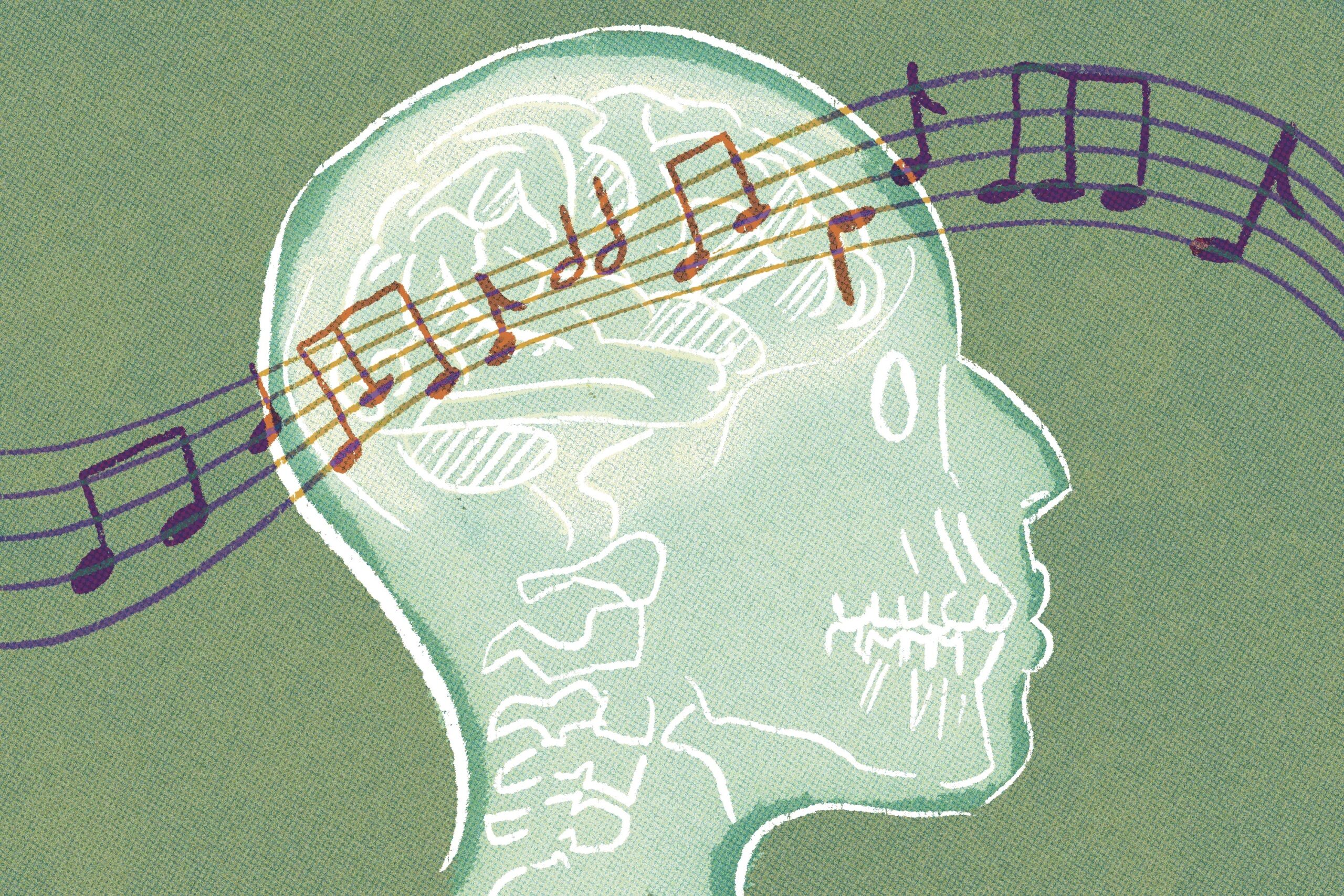Music. It’s almost as old as humanity and still one of the most enduring art forms. While other human activities may have fallen to the wayside, music remains one of the most prominent forms of self-expression. We can all think of a time in which music has moved us or brought out emotion. From the nostalgia experienced when hearing music associated with a pleasant memory, feeling sheer joy when that one pop song comes on, or even just crying to words being sung about heartbreak. Music has the ability to evoke emotion, an experience that is almost universal, with effects seen across culture, language, and eras. As famous composer Hans Christian Anderson puts it, “Where words fail, music speaks.” When melodies engulf our ears, we are impressed with what they express. Words and sounds blend sweetly to fill us with new experiences beyond our physical life. So, how exactly is this seemingly magical art creating such movements of the soul, and further, how can it be used to show who we are and what we are feeling?
Music is immaterial. It does not have a physical shape, often does not exist other than when played, which is hard to quantify. So then how does something that exists only as a translation of the senses cause such stirrings in our interior? This question has been at the forefront of many neuroscientists, who aim to answer the age-old question of how music’s effect on the brain.
According to the Global Council on Brain Health, “[Music] has significant potential to enhance brain health and wellbeing.” This was recorded in an article by the American Psychological Association aimed to study the ways music affects the brain. In a study conducted and showcased in said article, it was found that those who participated in musical activity showed better performance in executive function, working memory, and delayed gratification. It was also found that development in brain areas related to language and auditory processing was greater in those who participated in listening to music than those who did not. Participants were also found to have greater neural connectivity in the nerve bundle that connects the two hemispheres of the brain.
Another article in the Magazine of the University of Central Florida breaks down the areas of the brain that are affected when music is introduced. One specific interaction between the brain and music came from the Nucleus Accumbens, a part of the brain that is solely responsible for the pleasure and reward system. It was found that music actually increases the dopamine levels in the brain when listened to, in a way similar to cocaine. There was also a connection between music and the amygdala, which is the brain’s center for processing and creating emotions. Researchers discovered that music can actually put your body into fight or flight mode, and activate this area to elicit emotional responses. Most strikingly, music can have physical effects as well, as well as the hypothalamus which controls the hormone processes within the body. Music has been found to interact with this part of the brain, causing reduced heart rate, and blood pressure, and even temporarily stopping certain diseases like Parkinson’s when played. The effects and importance of music do not stop there. Music has the ability to reflect humans’ mental state just as much as it can alter it.
Music can affect us in a myriad of ways yet there are even more fascinating facets of musicality that are left undiscussed. Though, this can potentially tell us who we are. Recent research in the musical psychology field has allowed us to better understand how our listening habits can actually be reflective of an individual’s mental state. An article in Science Daily found that “Brain imaging reveals how neural responses to different types of music[…] affect the emotion regulation of persons.” The study’s results painted a picture of music’s reflection on the human psyche. It was found that participants who primarily listened to sad and aggressive music likely expressed negative feelings and tended to rank higher in neuroticism and anxiety.The study also found that the areas of our brain that deal with emotional regulation seem to slow down when listening to music as a form of expression. These findings help support the idea that our listening habits can actually be indicative of mental state, and at the same time allow us to express our emotions more authentically. While this is interesting in itself, it has also been found that music can be reflective of not just a personal mental state, but also the mental state of a society as a whole.
In a study published in the Current Psychology journal, it was noted that music preferences change depending on various factors. Amongst them is a societal trend which postulates that the more economic, social, or political hardships a group is facing, the higher the tendency towards slower more complex music. On the other end of this spectrum, faster, more repetitive, and upbeat music was typically associated with better overall societal health. These preferences also changed with the seasons; the winter reflecting complex and reflective music, and the summer being more worry-free.
The study used the Billboard Top 100 charts to map this data and expressed a reason that music preferences tended to reflect a society’s emotional state, with more contained music typically representing a people that was solemn. This effect seemed to stem from music’s ability to help process emotion, and that listening to music that was reflective of their mental state, could easier help them to navigate their emotional landscape.
Music is unlike any other medium that humanity has. It can change your brain structure, influence your mood, and serve as an indicator of a person’s or society’s mental state. Melodies and harmonies have an almost unbelievable ability to both change and represent humanity, in ways that are still being unveiled today. It appears humanity would look a lot different without music, as it can do things even the spoken word cannot. Perhaps music is so vital simply because it speaks directly to our emotions. As Russian author Leo Tolstoy puts it, “Music is the shorthand of emotion.” Regardless, music is truly a transformative tool on the human psyche and is one of the most beautiful things we have the pleasure of experiencing.

















